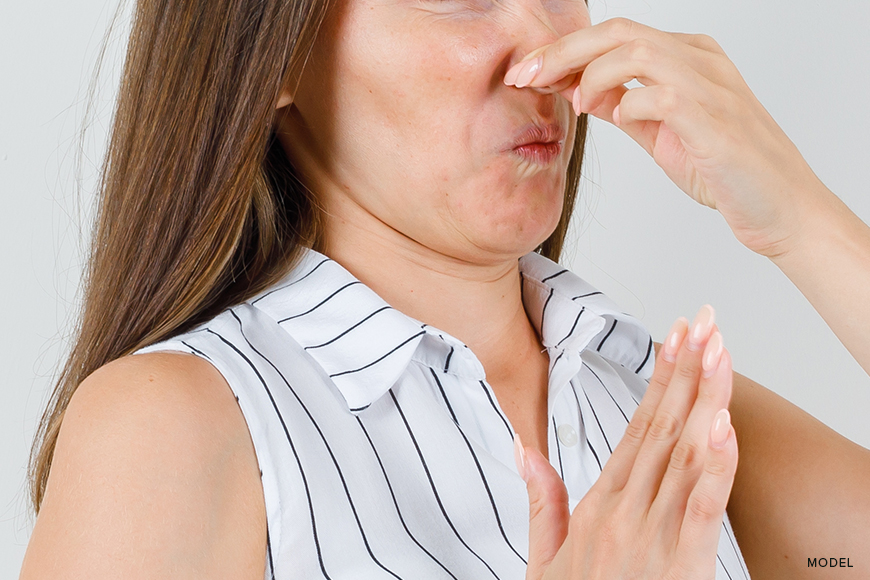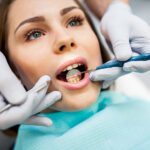A rotten tooth smell can be a significant source of embarrassment and discomfort. It often indicates an underlying dental issue, such as tooth decay or gum disease. If left untreated, these problems can lead to more severe complications, including tooth loss. In this comprehensive guide, we will delve into the causes, symptoms, and effective treatments for rotten tooth smell. We’ll also provide valuable prevention tips to help you maintain optimal oral health.
Understanding the Causes of Rotten Tooth Smell
A rotten tooth smell is typically caused by bacterial buildup on the teeth and gums. When food particles remain on the teeth, bacteria feed on them, producing acids that erode tooth enamel and irritate the gums. This can lead to the following conditions:
- Tooth Decay: Cavities form when bacteria erode the tooth enamel, creating holes in the tooth. These cavities can trap food particles and bacteria, leading to a foul odor.
- Gum Disease: Gum disease, also known as periodontal disease, is an infection of the gums caused by bacteria. It can lead to gum inflammation, bleeding, and, in severe cases, tooth loss. Gum disease is often accompanied by bad breath.
- Poor Oral Hygiene: Neglecting proper oral hygiene practices, such as brushing and flossing, can contribute to the buildup of plaque and tartar, which are major culprits behind bad breath.
- Dry Mouth: Saliva helps to wash away food particles and bacteria, keeping the mouth moist and clean. Dry mouth can lead to bad breath as it reduces saliva production.
- Certain Medical Conditions: Some medical conditions, such as diabetes, sinus infections, and acid reflux, can contribute to bad breath.
Recognizing the Symptoms of Rotten Tooth Smell
In addition to a foul odor, other symptoms of rotten tooth smell may include:
- Visible tooth decay or cavities
- Gum inflammation and bleeding
- Sensitivity to hot or cold temperatures
- Persistent bad taste in the mouth
- Sores or ulcers in the mouth
Treatment Options for Rotten Tooth Smell
The treatment for rotten tooth smell will depend on the underlying cause. Here are some common treatments:
- Dental Cleaning: A professional dental cleaning can remove plaque and tartar buildup, reducing bad breath.
- Fillings: Fillings are used to repair cavities and restore the tooth’s function.
- Root Canal Treatment: Root canal treatment is necessary when the tooth’s pulp becomes infected. This procedure involves removing the infected pulp and sealing the tooth.
- Gum Disease Treatment: Gum disease treatment may involve scaling and root planing to remove plaque and tartar from below the gumline. In severe cases, surgery may be required.
- Dry Mouth Treatment: If dry mouth is contributing to bad breath, your dentist may recommend using saliva substitutes or medications to increase saliva production.
Prevention Tips for Healthy Teeth and Gums
To prevent rotten tooth smell and maintain optimal oral health, follow these tips:
- Brush Your Teeth Twice a Day: Brush your teeth at least twice a day with a fluoride toothpaste.
- Floss Daily: Flossing helps to remove food particles and plaque from between your teeth.
- Use Mouthwash: Mouthwash can help kill bacteria and freshen your breath.
- Visit Your Dentist Regularly: Regular dental check-ups and cleanings are essential for maintaining good oral health.
- Avoid Smoking and Excessive Alcohol Consumption: Smoking and excessive alcohol consumption can damage your teeth and gums.
- Stay Hydrated: Drinking plenty of water helps to keep your mouth moist and clean.
- Eat a Balanced Diet: A balanced diet rich in fruits, vegetables, and whole grains can promote oral health.
- Limit Sugary Foods and Drinks: Sugary foods and drinks can contribute to tooth decay.

Recommended Article:
Bad Breath Prevention: Tips and Techniques for Fresh Breath
Are you tired of dealing with bad breath? Discover effective tips and techniques for bad breath prevention throughout the day.
Conclusion
A rotten tooth smell can be a frustrating and embarrassing problem, but it’s important to address it promptly. By understanding the causes and seeking professional dental care, you can effectively treat the underlying issue and prevent future problems. Remember, maintaining good oral hygiene practices is key to a healthy, beautiful smile.
If you’re looking for expert dental care in Madison, New Jersey, consider visiting Madison Dentistry & Implant Center. Our experienced team can help you achieve optimal oral health and a confident smile. Schedule a consultation today!




